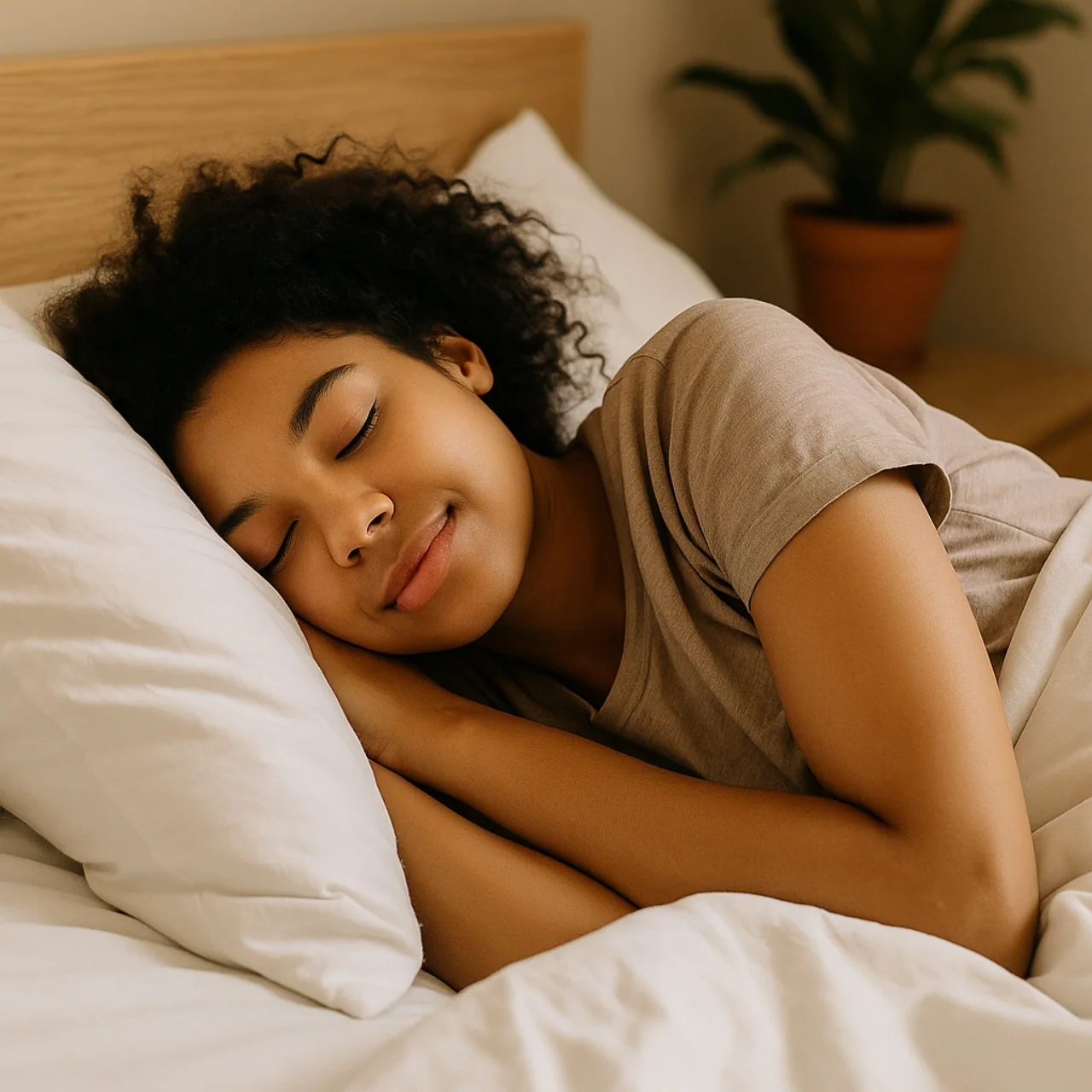Sleep isn’t just a time-out from daily life—it’s when your brain recharges, your body repairs, and your emotions reset. For 18 to 21-year-olds juggling college, part-time jobs, social life, and screen time overload, good sleep is your secret weapon.
In this blog post, we’ll explore what sleep is, why it’s essential, how to get better sleep, and answer your top FAQs.
🧠 What Is Sleep?
Sleep is a natural state of rest where your body and mind undergo critical maintenance. There are two main types:
1. REM Sleep (Rapid Eye Movement):
Where dreaming happens and emotional healing occurs.
2. Non-REM Sleep:
Deep, restorative sleep that repairs muscles and tissues.
Most young adults need 7–9 hours of sleep per night to feel and function their best.
🌟 Benefits of Sleep for 18–21-Year-Olds
Here’s what quality sleep can do for you:
- ✅ Boosts memory and focus
- ✅ Improves mood and reduces anxiety
- ✅ Supports immune function
- ✅ Promotes healthy skin and body
- ✅ Increases academic and athletic performance
Sleep isn’t a luxury—it’s a necessity.
😴 How to Get Better Sleep Naturally
Ready to ditch the late-night scroll and actually wake up refreshed? Try these science-backed sleep tips:
1. Create a Sleep Routine
Go to bed and wake up at the same time—even on weekends.
2. Limit Screen Time Before Bed
Blue light from phones and laptops suppresses melatonin (your sleep hormone). Power down at least 30–60 minutes before bedtime.
3. Make Your Space Sleep-Friendly
Dim lights, cool temperature, cozy blankets, and zero distractions.
4. Watch What You Eat (and Drink)
Avoid caffeine after 3 PM. Heavy meals or sugar before bed can disturb your rest.
5. Move Your Body During the Day
Exercise helps you fall asleep faster and improves sleep quality.
6. Practice Wind-Down Rituals
Read a book, stretch, journal, or listen to calming music—anything that tells your brain it’s time to chill.
❓ FAQs – All About Sleep
Q1: Is it okay to sleep late if I still get 8 hours?
Not ideal. Sleeping late can disrupt your circadian rhythm. Aim to sleep by 10–11 PM for better quality rest.
Q2: Can I catch up on sleep on weekends?
Nope. Oversleeping can mess up your body clock even more. Consistency is key.
Q3: What if I have insomnia or overthinking at night?
Try journaling, guided meditation, or breathing techniques to calm your mind. If it persists, consult a professional.
Q4: Is napping good or bad?
Power naps (15–30 minutes) in the early afternoon can be refreshing. Just avoid napping too late.
🛌 Final Thoughts: Sleep = Self-Care
If you want better grades, glowing skin, more energy, and less stress in 2025—prioritize your sleep. It’s one of the easiest and most effective ways to take care of your mental and physical health.
Read Also –
Time Management for Students (18–21): Strategies, Tools & Real Benefits
Mental Detox & Overthinking: A Gen Z Guide to Clearer Thoughts in 2025
